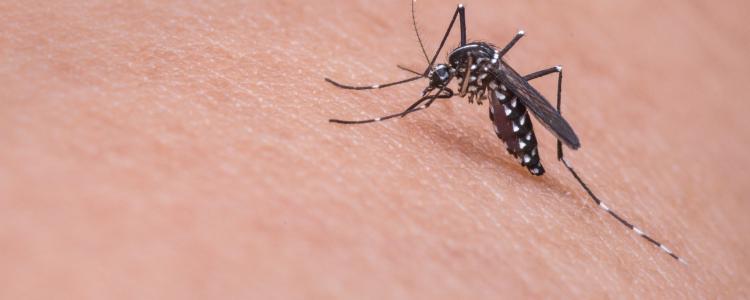The BBC report that a mysterious virus once confined to the Amazon is spreading widely around the Americas. So what is this mystery virus and do travellers need to be concerned?
Known by some as ‘Sloth fever’ Oropouche is the mysterious spreading virus. It used to be almost as common as Dengue in South America before chikungunya and Zika virus emerged, so this is not an unknown virus, it just hadn’t had much press until a significant number of outbreaks were reported this year.
During 2024, outbreaks of Oropouche were reported in Brazil, Bolivia, Colombia, Cuba, Peru, Guyana and the Dominican Republic. The risks of this disease have come to recent media attention due to reports of two deaths in previously healthy young adults with Oropouche virus infection and possible cases of foetal transmission during pregnancy. In October, Oropouche virus was also found in semen of a patient who had Oropouche infection which does raise concerns that like Zika virus there could also be a risk of sexual transmission.
How the Oropouche Virus is Spread
Oropouche virus is spread through the bites of infected midges and possibly mosquitoes that primarily bite around dawn and dusk. There are two cycles of infection. In forest areas infection is spread between insects and animals including sloths (where the virus gets it nickname), howler monkeys and marmosets. In urban areas the virus circulates between insects and people.

Risk of Infection for Travellers
There has been a total of 10,275 confirmed cases reported in the Americas Region since the start of the year and more cases of Oropouche continue to be reported. The latest being the 1st reported human case in Panama in November this year. Prevention of insect bites is the only way to reduce risk as there is no vaccine or medication to prevent or treat infection.
Symptoms of Oropouche Virus
Symptoms of Oropouche virus usually presents between 4 to 8 days and include fever, headache, joint pain, muscle pain myalgia, chills, nausea, vomiting and rash. Recovery is usually within 7 days from the onset of symptoms; however, it may take longer and cause complications such as meningitis or encephalitis.
These flu-like symptoms are very similar to those that present with other viral infections spread by mosquitoes such as Dengue fever, Chikungunya, Zika and Malaria virus, so can easily be misdiagnosed.
How to Prevent Bites from Midges and Mosquitoes
There are several really good ways of protecting yourself from insect bites. Adherence is key!
- Cover up as much as possible wearing long loose clothing covering arms and legs (if clothing is too tight insects can bite though to the skin).
- Use an insect repellent on exposed skin. 50% DEET based insect repellent is recommended as first line choice. Reapplication is essential taking into account activities planned e.g. swimming and sweat – off time.
- Use a clothing treatment – Permethrin. This will kill any insects that come into contact with your clothes. The treatment lasts several washes. You can also buy special outdoor clothing that has insect repellent built into the fabric and lasts the lifetime of the garment.
- Ensure air conditioning if available , seal windows. Use a fine mesh net to cover windows and doors. Permethrin treated mosquito nets should be used to offer protection when sleeping however they will be less effective against midges as they can easily pass through the holes of the mesh. A knock down room spray can also be used.
Advice Prior to Travel
- Check if there is a risk in the country you are visiting.
- Visit a Nomad travel health clinic for a travel health consultation and risk assessment at least 6 – 8 weeks prior to travel.
- Due to the potential risk for mother – child transmission of Oropouche virus, pregnant women and those planning a pregnancy should discuss the potential risks of their travel plans with their health provider and during their travel health consultation.
Whilst Away
- Travellers who are concerned about the risks that the virus could be present in semen and the possibility of the virus spreading through sexual intercourse should consider using condoms or not having sex whilst travelling and for six weeks on return.
- Seek medical advice from health professional if you present with symptoms whilst away.
On Return
Seek medical advice if you have any symptoms such as high fever, chills, headache, joint pain and muscle aches on return from your trip. Pregnant women should advise their midwife if they have travelled to risk areas.
Additional Reading / Sources
https://travelhealthpro.org.uk/disease/138/oropouche-virus-disease
WHO Fact Sheet.
BBC News.

